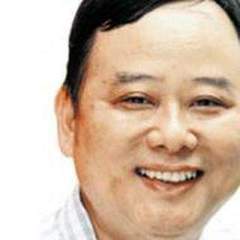China's FM Wang Yi paves way for Xi with diplomatic blitz
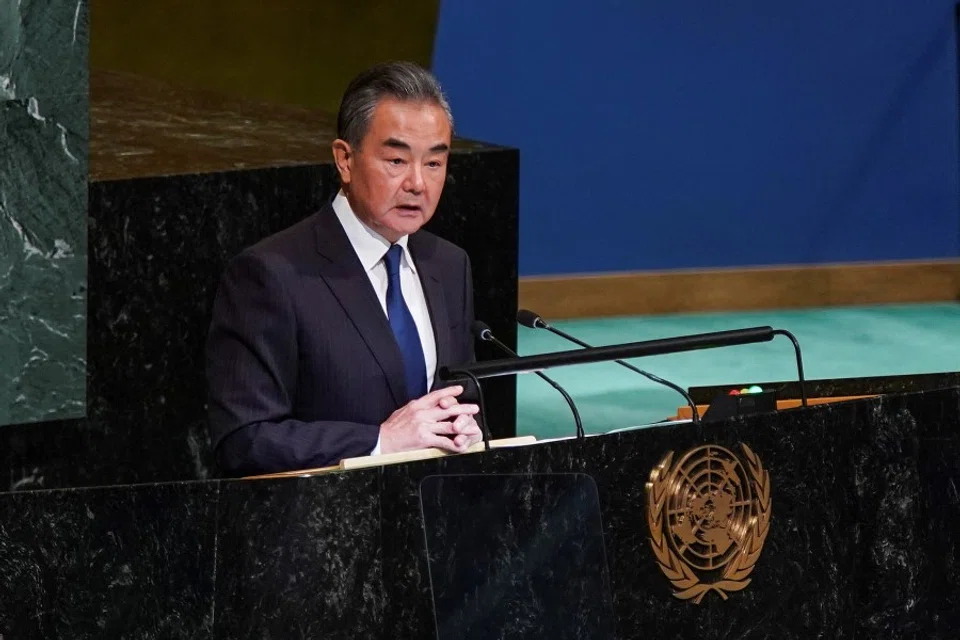
Over the past week, Chinese State Councilor and Foreign Minister Wang Yi has been busy meeting political figures and heads of international organisations at the 77th United Nations General Assembly (UNGA), marking another high point in his nearly decade-long stint as foreign minister.
Earlier this month, chairman of the Standing Committee of the National People's Congress Li Zhanshu and Chinese President Xi Jinping made overseas trips for the first time since the pandemic started in 2020, signalling that high-level Chinese diplomacy has resumed and could possibly normalise after the 20th Party Congress in October.
An important mission for Wang while he is at UNGA is to meet with key political figures, especially those from the US and Western countries, to pave the way for Xi's attendance at the G20 Summit in Indonesia and the APEC meeting in Thailand in November.
Laying out China's stand and achievements
According to Chinese foreign ministry website records, since 19 September 2022, Wang has attended a slew of events, given several addresses and keynote speeches, and held bilateral meetings with various leaders of international organisations and key political figures. At these functions, Wang has laid out China's stand on China-US relations and other issues, and its achievements in promoting global development.
"... how will the US deliver on its promise of not aiming to change China's system, when it has framed a false narrative of 'democracy versus authoritarianism', which takes aim at China's political system, development path and governing party?" - Wang Yi
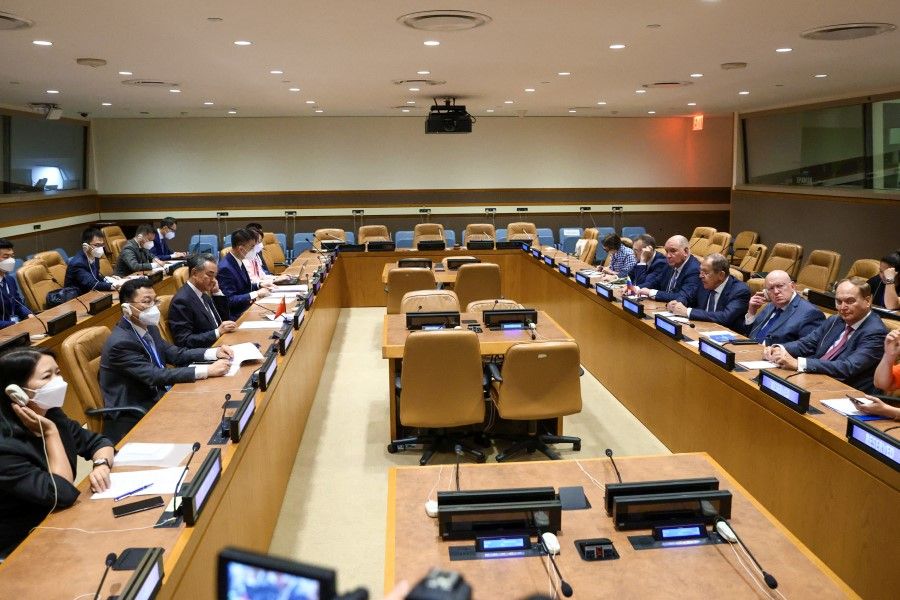
Wang met US Secretary of State Antony Blinken, UK Foreign Secretary James Cleverly, French Foreign Minister Catherine Colonna, German Foreign Minister Annalena Baerbock, Australian Foreign Minister Penny Wong, Russian Foreign Minister Sergei Lavrov, Ukrainian Foreign Minister Dmytro Kuleba and more.
In response to US queries about the "uncertainties" in China's policies, at a session with the National Committee on US-China Relations and other representatives, Wang laid out five "certainties" about China, namely the prospects of its development, its resolution in reform and opening up, its policy towards the US, its attitude of continuing to strengthen economic and trade cooperation between the two countries, and its willingness to carry out multilateral coordination with the US.
Questioning the US's policy
Wang did not only go on the defensive, but also raised four major questions about the US's China policy when speaking on China-US relations at the New York headquarters of the Asia Society:
One, how will the US deliver on its promise of not aiming to change China's system, when it has framed a false narrative of "democracy versus authoritarianism", which takes aim at China's political system, development path and governing party?
Two, how can a new Cold War be prevented, when the US has identified China as its primary rival and the most serious long-term challenge, and engaged in all-round containment?
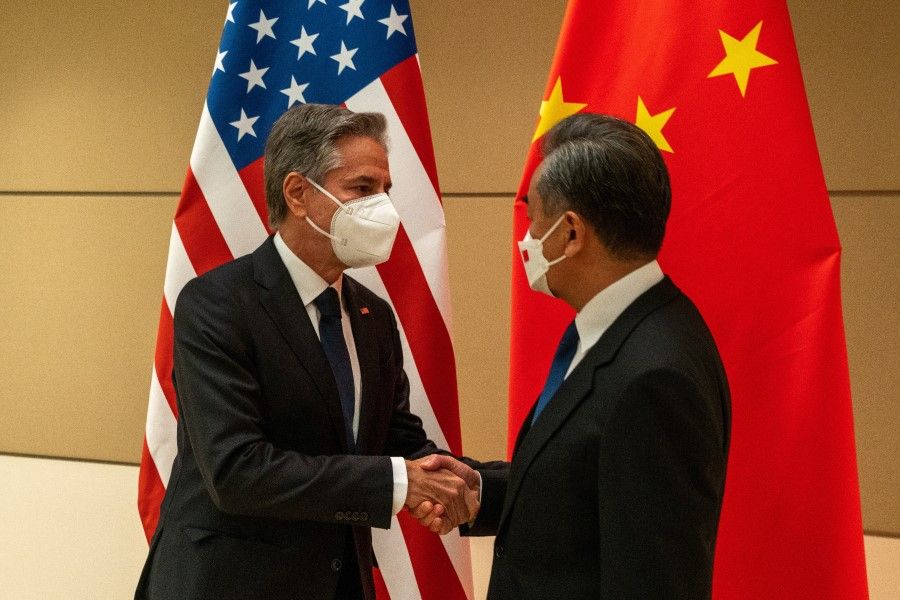
Three, how will the US honour its key statement of not supporting Taiwan independence when it has, regardless of China's strong opposition, allowed its house speaker to visit Taiwan again after 25 years, kept elevating substantive relations with Taiwan by repeated official exchanges and arms sales including many offensive weapons, and is advancing the deliberation of the Taiwan Policy Act?
Four, how can industrial and supply chains remain stable between China and the US and the world, when the US is prolonging the trade war with China by keeping in place extra tariffs on US$360 billion worth of Chinese goods despite being inconsistent with World Trade Organization rules, while extending the list of Chinese companies under its sanctions?
During his meeting with Blinken, Wang focused on the Taiwan issue, emphasising that "the Taiwan question is at the heart of China's core interests, and is of paramount importance to the Chinese people". He urged the US to "earnestly return to the three China-US Joint Communiqués and the one-China principle, clearly reaffirm its commitment to the one-China policy, and unequivocally state its opposition to any 'Taiwan independence' separatist activity".
Meanwhile, Blinken stressed that the US is "committed to maintaining peace and stability across the Taiwan Strait" and that "preserving peace and stability across the Taiwan Strait is critical to regional and global security and prosperity", implying that the US is concerned about the mainland's use of force to solve the Taiwan issue.
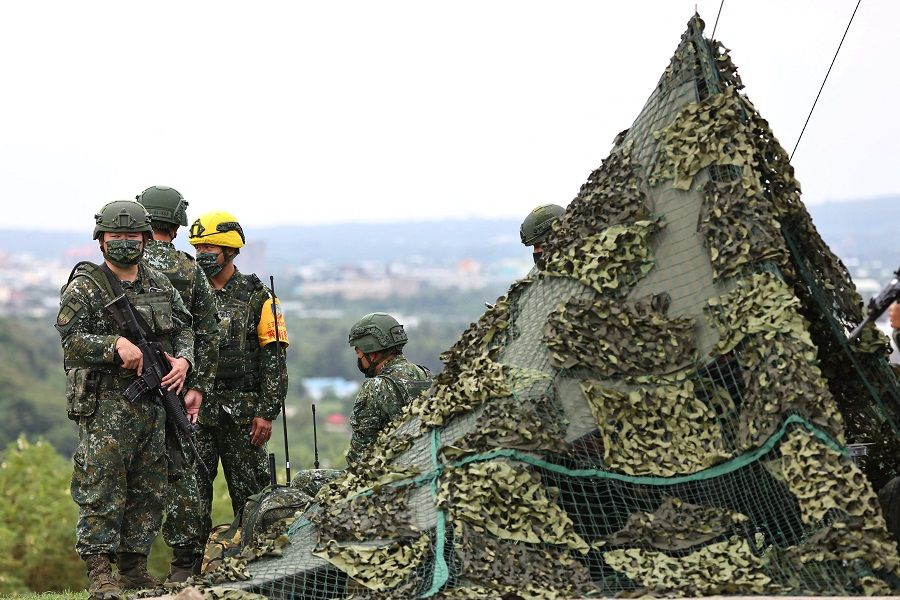
Wang reiterated that China will "continue to adhere to the fundamental guidelines of peaceful reunification and 'one country, two systems'". But he also pointed out that peaceful resolution "cannot coexist" with "Taiwan independence".
He added, "The more rampant 'Taiwan independence' separatist activities are, the less likely peaceful resolution is."
China's commitment to peace and stability
Clearly, it is difficult for China and the US to bridge their differences about the Taiwan issue, and neither can one side persuade the other to accept their positions. But amid the war of words, both sides have expressed their willingness to maintain stability in China-US relations under difficult circumstances. This implies that the Chinese and US heads of state could still meet on the sidelines of the G20 summit this year despite ongoing and intense China-US competition.
In response to the West's criticisms of China's support for Russia in the Russia-Ukraine war, Wang has also discussed the situation in Ukraine with various politicians and met with Ukrainian Foreign Minister Dmytro Kuleba.
"China will not stand on the sidelines, pour oil on the flames, nor seek selfish gains in the Russia-Ukraine war." - Wang Yi
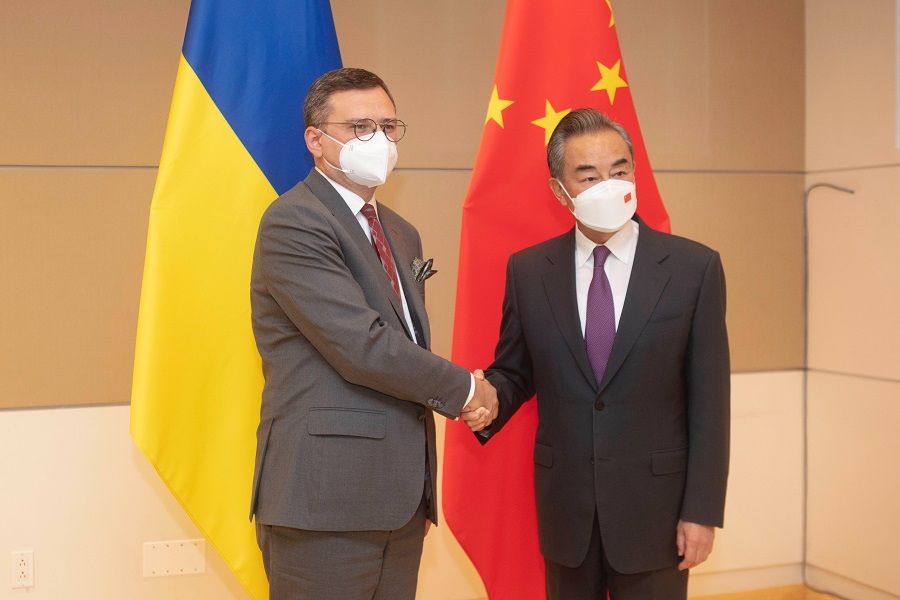
Wang stressed that "all countries deserve respect for their sovereignty and territorial integrity, the purposes and principles of the UN Charter should be observed, the legitimate security concerns of any party should be taken seriously, and support should be given to all efforts that are conducive to peacefully resolving the crisis".
He also emphasised that China will not stand on the sidelines, pour oil on the flames, nor seek selfish gains in the Russia-Ukraine war.
By doing so, Wang is asserting that China will not choose sides but will remain neutral and stay committed to dialogue for peace because China is not a party involved in the Russia-Ukraine war. At the same time, China should not be morally accused of "supporting Russia's invasion of Ukraine".
Some analysts believe that Wang is the most capable and reputable foreign minister since former Chinese Vice-Premier and Foreign Minister Qian Qichen.
Sixty-nine-year-old Wang had a schedule packed to the brim while he was attending the UNGA, demonstrating his high level of energy in carrying out his work. Some analysts believe that Wang is the most capable and reputable foreign minister since former Chinese Vice-Premier and Foreign Minister Qian Qichen.
Wang could most likely break the customary retirement age of 68 for the party's top leaders after the CCP's 20th Party Congress, succeed Politburo member and Director of the Central Commission for Foreign Affairs Office Yang Jiechi, and continue to play an important role in China's diplomatic front.
Related: China and the US showing restraint over Taiwan issue | Implications of Xi Jinping resuming overseas trips before 20th Party Congress | Will China's 'Asian way' of building peace for Asia work? | Wang Yi's Southeast Asia tour: How China woos Southeast Asia in view of US-China competition | China's growing influence in the Indian Ocean: Wang Yi's visit to Comoros, Sri Lanka and the Maldives | Xi Jinping embarks on Central Asia visit amid a changed world
